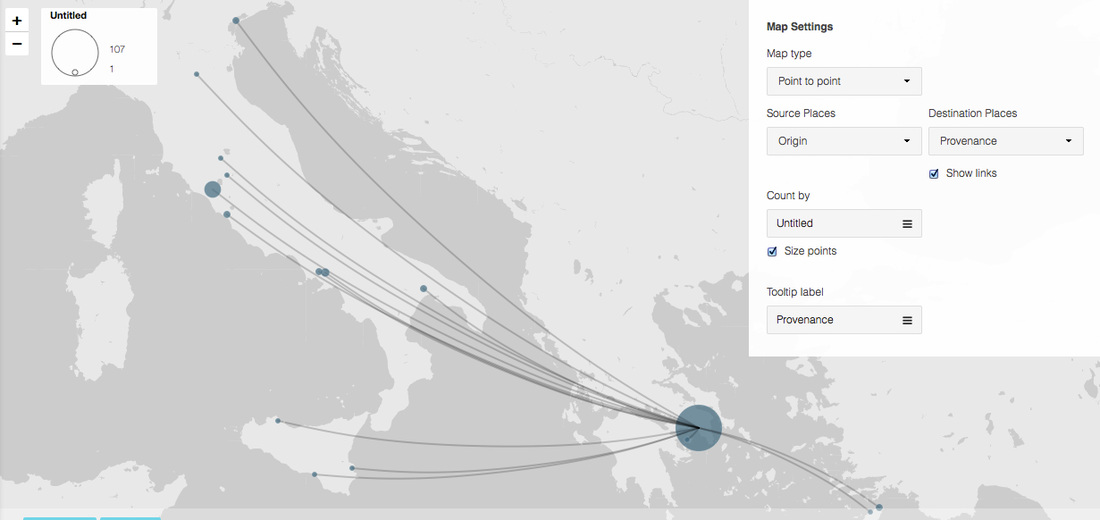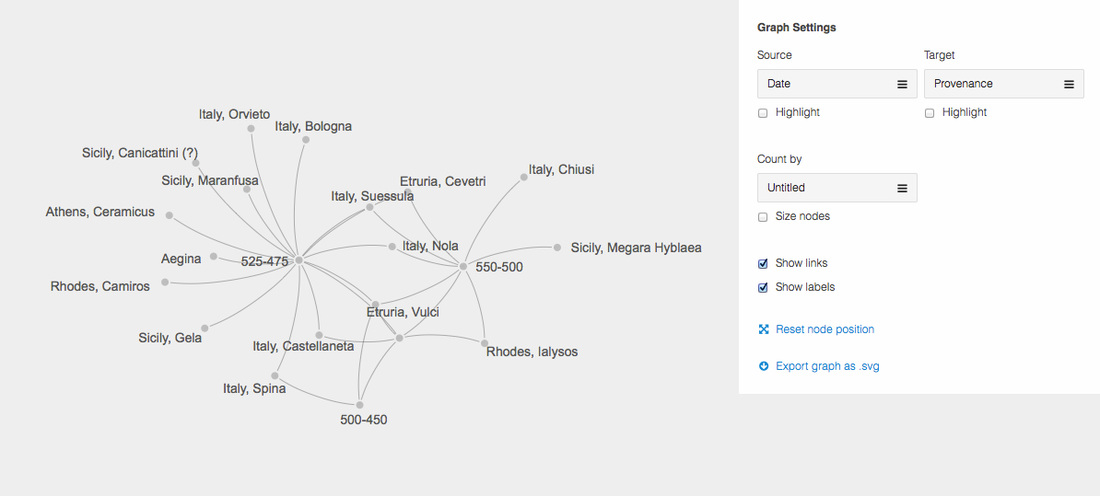the trade
“Certain types of pot (plain clay jars) were in demand for the conveyance abroad of liquids, wine (possibly) and oil (certainly), from Athens…Other types were fashioned for use in the home… Black figure extensively exported, replacing the Corinthian productions of the late 7th and 6th centuries…
For a time, indeed, trade with Etruria declined and disappeared, and the vase exports to the Black Sea region were also suspended… [trade] was revived in the second half of the 5th century and in the early fourth, and ended with the final decline of Athenian vase-painting and the rise of the South Italian… A great problem is that concerning the dimensions of the export trade in pottery…Argued that the black-glazed pottery must have formed a relatively small proportion of the total exports from Athens.”
Source:
Hopper, Robert John. Trade and industry in classical Greece. London: Thames and Hudson, 1979.
(page 96-97)
For a time, indeed, trade with Etruria declined and disappeared, and the vase exports to the Black Sea region were also suspended… [trade] was revived in the second half of the 5th century and in the early fourth, and ended with the final decline of Athenian vase-painting and the rise of the South Italian… A great problem is that concerning the dimensions of the export trade in pottery…Argued that the black-glazed pottery must have formed a relatively small proportion of the total exports from Athens.”
Source:
Hopper, Robert John. Trade and industry in classical Greece. London: Thames and Hudson, 1979.
(page 96-97)
traders
"Legal protection—i) legal facilities for the settlement of mercantile disputes for citizens, resident aliens, and foreigners ii) arrangements to secure the rights, in legal matters, of Athenians and those trading from Athens, in other states.
…rare, from literary sources, for an Athenian citizen to engage in trade (overseas commerce) – the absence over long period, which was necessary in such a calling, rendered it impossible for one who followed it it to fulfill his duties as a good citizen.
…large number of foreigners, the xenoi metoikoi, resident permanently or temporarily in the city , who were responsible for the active furtherance of overseas trade. This foreign population was divided into two classes, the metoikoi (metics) or resident aliens, and the xenoi parepidemountes, or visiting foreigners."
Source:
Hopper, Robert John. Trade and industry in classical Greece. London: Thames and Hudson, 1979.
(page 110)
…rare, from literary sources, for an Athenian citizen to engage in trade (overseas commerce) – the absence over long period, which was necessary in such a calling, rendered it impossible for one who followed it it to fulfill his duties as a good citizen.
…large number of foreigners, the xenoi metoikoi, resident permanently or temporarily in the city , who were responsible for the active furtherance of overseas trade. This foreign population was divided into two classes, the metoikoi (metics) or resident aliens, and the xenoi parepidemountes, or visiting foreigners."
Source:
Hopper, Robert John. Trade and industry in classical Greece. London: Thames and Hudson, 1979.
(page 110)

This work is licensed under a Creative Commons Attribution-NonCommercial-NoDerivatives 4.0 International License.
Visualization collected from personal data, via the Beazley Archive online. Visualization created through Palladio Humanities + Design


